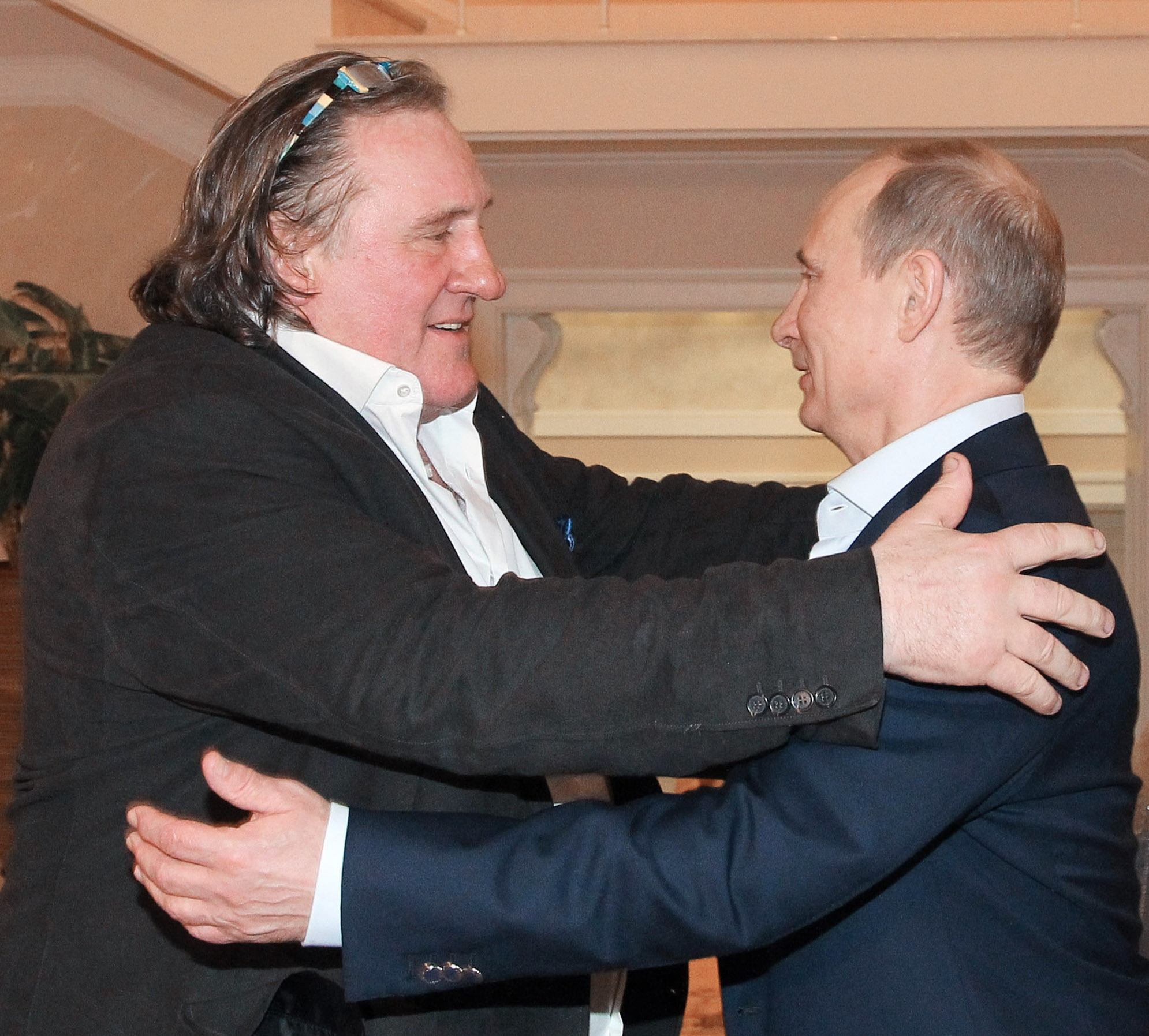
As Gerard Depardieu found out recently, few things enflame public anger quite so fiercely as talk of tax. But are more of the super-rich going into self-imposed exile, or are we being distracted by a few high-profile cases? The actor turned over his French passport, social security card and $65m Parisian home in protest at France’s proposed marginal income tax of 75 percent.
The move garnered an angry response from the french press, its public and politicians, but Depardieu found a warmer welcome in his new home of Russia. He was greeted with a fresh passport from President Vladimir Putin himself and a free apartment in the country’s Mordovia region. Anger at celebrity tax exiles is nothing new. Richard Burton drew similar criticism from the press when he went into tax exile in Switzerland in 1957.
Like France today, the Britain of 1957 was in dire economic straits. While some defended Burton for escaping a grossly unfair tax system – the 90 percent rate meant he kept just £6,000 of the £82,000 he had earned that year – others accused him of abandoning his patriotic duty: just as French Culture Minister Aurelie Filippetti accused Depardieu of “deserting the battle in the war against crisis”.
Blood brothers
France has (or, depending on your perspective, had) thousands of tax exiles, though most choose to move less further afield than Depardieu. The majority choose close neighbours like the UK or Belgium. While neither country is exactly a tax haven, they have fewer of the additional factors that aggravate some of the super-rich.
Belgium has no wealth or capital gains tax, and Her Majesty’s Revenue and Customs is more easily persuaded to only tax non-domiciled residents on income made in, or remitted to, Great Britain. While their own tax exiles may be a headache for some politicians, other people’s are a commodity worth having.
The friendship shared by Depardieu and Vladimir Putin has been much discussed, but there’s no doubt the Russian President saw the actor’s move as a valuable piece of political stagecraft. Depardieu is a popular figure in Russia and it will help Putin’s waning popularity to be seen to bring him ‘home’. Putin is keen to re-establish Russia as a leading economic and political power: Depardieu’s choice of the country over a European neighbour sends a message that Russia is open for business.
The President will also be hoping Depardieu’s arrival will attract more discontented millionaires; Russia’s personal income tax rates may be lower, but a small amount of a rich man’s capital can still be an awful lot. And Putin wasn’t alone in seeking to make political capital from Depardieu’s self-imposed exile – though Bulgaria’s Demographic Policy Centre sought to make a rather different point.
The Bulgarian government’s letter to Depardieu and fellow French tax exile Bernard Arnault described tax payments as “optional” in their country and promised the “possibility to drain as much as you wish from the tax system”: a thinly veiled attack on the country’s own problems with mass emigration.
Border control
It’s not difficult to see why the young and ambitious would choose to leave a cash-strapped former eastern bloc country like Bulgaria – poor countries offer poor opportunities – but France is facing a similar problem. The 75 percent marginal income tax may since have been voted down – though French President François Hollande promises it will be back – but it has already had its effect.
Since April 2012, the number of requests made by French citizens to leave the country has leapt up by 400 to 500 percent. The increase has largely been attributed to relatively young, affluent entrepreneurs who feel disincentivised by their country’s punishing tax system.
While the move to heavily tax the rich was popular with the French public, Le Monde questioned its effectiveness. The newspaper said: “Economically counter-productive, [the 75 percent rate] unnerved business leaders — including those who would be far from the policy’s tax bracket. Legally ill-conceived, it’s been rejected by the Constitution Council, who didn’t even need to judge it confiscatory… and it would have had only a modest effect on the budget: €210 million a month.”
Jean-Philippe Delsol, a tax lawyer and board member of Paris’ Institute for Research on Economic and Fiscal Issues, was even more scathing. He said: “France will soon run out of entrepreneurs and wealthy people, and the socialists will have only their taxes to eat.” The UK government cited similar (albeit less emotively worded) reasons for its decision to drop the country’s top tax bracket to 45 percent this coming April – though commentators also pointed to increased tax avoidance as a reason for the under-delivery of the UK’s 50 percent tax rate.
There’s no doubt the French government’s tax policy is unpopular with its richest citizens – but with key pieces of legislation still working their way through the legal system, its full effect will not be seen for some time yet. It is unlikely Depardieu will be the last of his countrymen to leave France for more wealth-friendly climes, but whether the current increase in exit requests is a brief spurt or a continuing torrent is hard to say.
For now at least, the 2,000 residents of the Belgium village of Nechin – a third of whom are French tax exiles – will sleep a little easier in their beds, 800 yards from the border.

